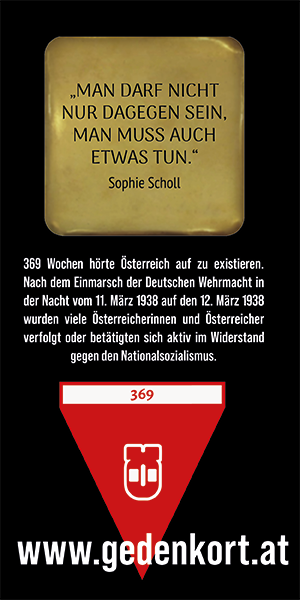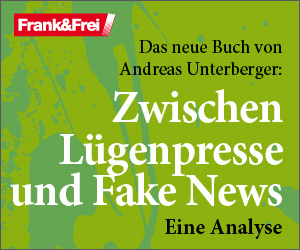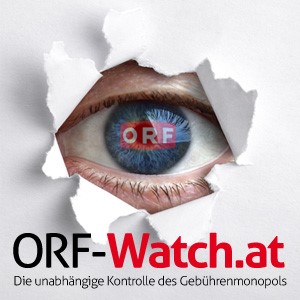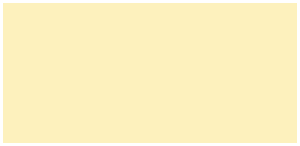Nine Austrian journalists, including the author of this article which is one of many published on my Tagebuch (diary), have got together to create a new website ORF-Watch.at.
It is in fact already online, and a bid to create the first truly independent watchdog for ORF, the licence-payer-funded Austrian state broadcaster. Although all parties and indeed all media can come under the spotlight of the ORF, there is nothing truly independent to turn the public focus in the other direction. We hope that this new website tackles this, and makes for interesting reading. Please check it out.
Naturally, despite this new journalistic undertaking, the Tagebuch will continue without interruption and hopefully at full power as always. And it also goes without saying that we will continue to make the ORF one of our regular topics. But of course only one of many.
The ORF-Watch page is free access and we hope will be funded by donations from readers – and from money from those who are involved in the project.
It goes without saying that in print media and private media there are mistakes. But these media are not financed by the public through a legally enforceable demand for a subscription. With the other media their content is perhaps more a matter for their readers or viewers.
But the ORF law in Austria means everybody that has a radio or television is legally obliged to pay the licence fee. That should mean that the ORF has a unique position due to its privileged status of responsibility towards all members of the public.
Logically such privilege also brings obligations, at least theoretically. Because in reality ORF staff make unlimited use of their privileges without seeming to worry at all about any duties that they might otherwise feel obliged to attend to. They get involved in agitating over radical one-sided and ever more left-wing positions using Twitter and Facebook, they cash in vast sums personally from their position as an advertising platform, and they lobby aggressively for organised events at favourable prices whose representatives are then supposedly objectively interviewed on the ORF.
But above all the ORF in its daily programming is massively one-sided. That is in the television information through to the magazine programmes on radio station Ö1. This one-sided situation has also been confirmed by various opinion polls, at least the independent ones that the ORF are not connected with.
At the same time the (politically created) constitutional court has given the ORF the green light to compete with other media and not just radio and television rivals, of course using the padding from licence fees that gives them a massive advantage. That is happening despite the fact that the ORF was actually created to do radio and television programs. And at the same time, once again backed up by the constitutional court that in turn is controlled by the same two parties, it's been organised that there is now an absolute minimum participation from viewers and listeners when it comes to getting involved in setting up the ORF Trust members and ORF General Public Council.
All these developments make it even more necessary and relevant to finally have an open and critical discussion about the ORF, its team, its programmes and its charges. Taxes and other deductions are not available, although we would wish that they were lower, yet there is at the same time constantly less reason for the monopolistic licence fee payments to the ORF. There are after all other countries that are just as democratic as Austria and that don't feel the need to have the licence fee.
This critical side is apparent on ORF-Watch from two point of view. On the one hand it is a criticism of the daily programming choice, and the online and teletext sites of the licence fee collecting broadcaster. On the other hand it is to be a discussion page on public rights, independence and party influence and of course the licence fee itself.
With regards to both matters the ORF viewers and listeners can take part in a discussion right from the start on the new webpage. This can be either by short comments, or alternatively by submitting longer reports which can be uploaded with a small donation to the upkeep of the site.
It is after all a journalistic obligation to be critical of journalistic monopolies. That is just as important as it is for politics. But it is also the obligation of all members of the public.
We hope that these will have an interesting debate and that in Austria there will now be a fresh wind of change that is something which is urgently needed.
This English version of comment from the Tagebuch was translated by the British journalist Michael Leidig and his team at the Central European News agency. He can be contacted for corrections and improvements to the English here: (editor@cen.at)












